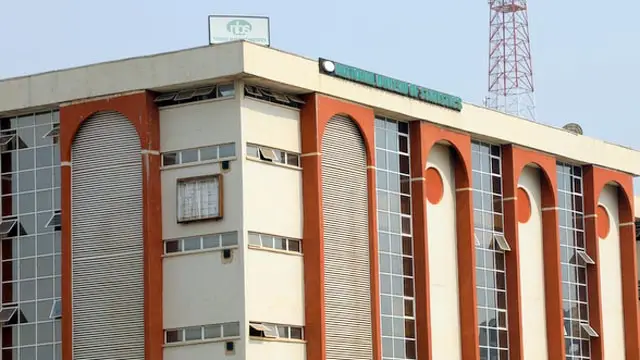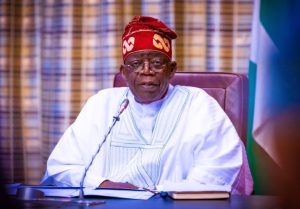
“Nigeria’s Public Debt Hits N97.34 Trillion in Q4 2023 – NBS”

Nigeria’s public debt stock has surged to N97.34 trillion (equivalent to 108.23 billion dollars) in the fourth quarter of 2023, according to the Nigerian Domestic and Foreign Debt Report for Q4 2023 released by the National Bureau of Statistics (NBS). This represents a significant increase from the N87.91 trillion (114.35 billion dollars) recorded in the previous quarter. The report indicates a quarter-on-quarter growth rate of 10.73 percent in Nigeria’s public debt stock, comprising both external and domestic debt.
The NBS report reveals that Nigeria’s external debt stood at N38.22 trillion (42.50 billion dollars) in Q4 2023, while domestic debt amounted to N59.12 trillion (65.73 billion dollars). Furthermore, the share of external debt in the total public debt was 39.26 percent, with domestic debt accounting for the remaining 60.74 percent.
Analyzing the debt distribution across states, Lagos State emerged as the highest debtor in terms of domestic debt, with a total of N1.05 trillion. Following closely was Delta State, with a domestic debt of N373.41 billion. Conversely, Jigawa State recorded the lowest domestic debt at N42.76 billion, trailed by Kebbi State at N60.69 billion.
“Nigeria’s Public Debt Hits N97.34 Trillion in Q4 2023 – NBS”
Regarding external debt, Lagos State ranked first with an outstanding debt of 1.24 billion dollars, while Kaduna State followed with 587.07 million dollars. Borno State had the lowest external debt with 20.49 million dollars, closely followed by Yobe State with 21.49 million dollars.
The significant increase in Nigeria’s public debt stock raises concerns about the country’s fiscal sustainability and debt management. While debt can be a useful instrument for development and investment, it is crucial for the government to ensure that the borrowed funds are utilized efficiently and effectively to spur economic growth and development. Proper debt management strategies, transparency, and accountability are essential to mitigate the risks associated with mounting debt levels.
As Nigeria continues to grapple with the challenges posed by a high debt burden, policymakers and relevant stakeholders need to focus on measures that promote sustainable economic growth, diversification, and revenue generation. This includes exploring avenues to enhance domestic resource mobilization, attract foreign direct investment, and implement prudent fiscal policies that foster economic stability and resilience.


Proper measures should be carried out by the government, inorder to reduce this debts.
Our focus shouldn’t be only on crude oil we can venture into other resources that we have in Nigeria such as Palm oil,Coca etc. That way profit realized we be used to settle some of the debts owed.